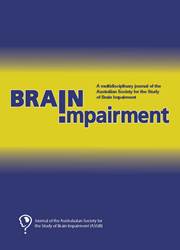Unmet Need in Psychiatry
Few countries can provide adequate health services for all the mentally ill, yet none have developed a rational system to decide who should be treated. This innovative book considers ways to resolve this dilemma. The questions are clear: What should the criteria be for deployment of scarce treatment resources? How do we determine and apply such criteria? What are the ethical implications? In this pioneering work, an international team of eminent psychiatrists, epidemiologists, health administrators, economists and health planners examine these questions. This volume is divided into four parts: Part I. Unmet Need: Defining the Problem; Part II. Unmet Need: General Problems and Solutions; Part III. Unmet Need in People with Specific Disorders; and Part IV. Unmet Need: Specific Issues.
- Pioneering study of how to solve the worldwide problem of matching limited available treatment resources to the need of all those suffering from mental disorders
- International, multi-disciplinary team of 63 eminent contributors: psychiatrists, epidemiologists, health administrators, economists and health planners
- An essential study that will inform and encourage all those who care for the mentally ill
Product details
February 2000Hardback
9780521662291
462 pages
237 × 157 × 27 mm
0.89kg
Available
Table of Contents
- List of contributors
- Preface
- Part I. Unmet Need: Defining the Problem:
- 1. Assessing needs for psychiatric services Norman Sartorius
- 2. Unmet need: a challenge for governments Harvey Whiteford
- 3. Meeting the unmet need with disease management Gavin Andrews
- Part II. Unmet Need: General Problems and Solutions: Introduction Gavin Andrews
- 4. The epidemiology of mental disorder treatment need: community estimates of 'medical necessity' Darrel A. Regier, William E. Narrow, Agnes Rupp, Donald S. Rae and Charles T. Kaelber
- 5. Some considerations in making resource allocation decisions for the treatment of psychiatric disorders Ronald C. Kessler
- 6. The need for psychiatric treatment in the general population Paul Bebbington
- 7. Comparing data on mental health service use between countries Margarita Alegría, Ronald C. Kessler, Rob Bijl, Elizabeth Lin, Steven G. Heeringa, David T. Takeuchi and Bodhan Kolody
- 8. The challenges of meeting the unmet need for treatment: economic perspectives Agnes Rupp and Helen Lapsley
- 9. Unmet need for prevention Beverley Raphael
- 10. Meeting unmet needs: can evidence-based approaches help? Harold Alan Pincus and Deborah A. Zarin
- 11. Unmet need for management of mental disorders in primary care T. Bedirhan Üstün
- 12. Is complementary medicine filling needs that could be met by orthodox medicine? John E. Cooper
- Part III. Unmet Need: People with Specific Disorders: Introduction Gavin Andrews
- 13. The unmet needs of people suffering from schizophrenia Graham Thornicroft, Sonia Johnson, Morven Leese and Mike Slade
- 14. The early course of schizophrenia: new concepts for intervention Heinz Häfner and Kurt Maurer
- 15. Unmet need in depression: varying perspectives on need Kay Wilhelm and Elizabeth Lin
- 16. Unmet need following serious suicide attempt: follow-up of 302 individuals for 30 months Annette Beautrais, Peter Joyce and Roger Mulder
- 17. Met and unmet need for interventions in community cases with anxiety disorders Hans-Ulrich Wittchen
- 18. The unmet need for treatment in panic disorder and social phobia Caroline Hunt
- 19. Alcohol-use disorders: who should be treated and how? Wayne Hall and Maree Teesson
- 20. Putting epidemiology and public health in needs assessment: drug dependence and beyond James C. Anthony
- 21. Why are somatoform disorders so poorly recognized and treated? Ian Hickie, Rene G. Pols, Annette Koschera and Tracey Davenport
- Part IV. Unmet Need: Specific Issues: Introduction Scott Henderson
- 22. Unmet need in mental health service delivery: children and adolescents Michael Sawyer and George Patton
- 23. Assessing psychopathology among children aged four to eight Linda Cottler, Wendy Reich, Kathy Rourke, Renee M. Cunningham-Williams and Wilson M. Compton
- 24. Unmet need in indigenous mental health: where to start? Ernest Hunter
- 25. Health systems research: a pragmatic model for meeting mental health needs in low-income countries Vikram Patel
- 26. Disablement associated with chronic psychosis as seen by two groups of key informants: patients and mental health professionals Charles B. Pull, Arnaud Sztantics, Steve Muller, Jean Marc Cloos and Jean Reggers
- 27. The assessment of perceived need Graham Meadows, Ellie Fossey, Carol Harvey and Philip Burgess
- 28. Public knowledge of and attitudes to mental disorders: a limiting factor in the optimal use of treatment services Anthony F. Jorm, Mattias Angermeyer and Heinz Katschnig
- Part V. Unmet Need: Conclusion:
- 29. A personal overview John R. M. Copeland
- 30. Conclusion: the central issues Scott Henderson
- Index.












